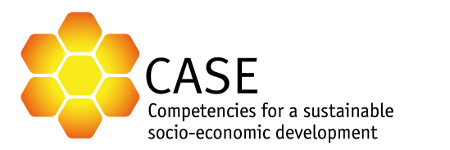Eco-Social Design can be understood as a participative, interdisciplinary, and community-oriented process to create sustainable and holistic solutions. It is not only about changed aesthetics, but rather a contextual rethinking. The research question was: How can Eco-Social Design contribute to creating interest and appreciation for nature and gardening through the principles and practices of permaculture in children?
Continuous ecological, social, political, and economic destabilization shapes today’s time. The root of the problem can be recognized in human culture. This is where wildbunt comes in. Through its holistic approach to permaculture, it offers a potential solution to today’s environmental and cultural crisis. The first step is to observe and understand how nature works. In a second step, the collected insights are integrated into the planning and design of human systems.
Initially, the focus was on the conception, planning and implementation of the project: a holiday program for children on the subject of permaculture was developed, for which a collaboration was put in place with the Educational Center Haus der Familie (HdF) on Ritten/Renon in South Tyrol. Two five-day courses offered 10-15 children between the age of 7 and 12 the opportunity to explore the garden at the education center.
The project can be divided into 3 phases: search for partners and funding, preparation and development of outputs, and finally implementation and reflection. The two course weeks act as prototypes, which are the object of scientific investigation. wildbunt can thus be located in the area of “Research Through Design”.
An extensive framework was developed to prepare the gardening and permaculture contents and divide them into modules. Each module focuses on one topic for which learning and working materials were developed, equipping the children with basic knowledge about a topic. In a second step, these introductions were practically expanded. For example, hay and sheep’s wool were laid out as a mulch in the garden, a worm compost was built of recycled materials, and the children built seed packets from recycled newspaper.
To create additional local reference, guests were invited. For instance, Teo Libera, a regional organic apple farmer, supported us during the modules “Ecosystem Forest” and “The Earthworm and Worm Compost”. The aim was to allow the kids a joyful and interesting learning experience together with various stakeholders from the area and to provide them with numerous resources and starting points to explore their own interests and strengths.
“wildbunt – The Permaculture-Camp on Ritten/Renon” is planned and implemented in German language. The nature of the holiday program is reflected in the design. Writing and colours are playful and lively, complemented by hand-drawn illustrations. The core of the toolkit is a box with collectible cards, explaining a variety of topics to the children. The children receive further materials to continue gardening at home. The course framework and toolkit can be extended flexibly due to its modular character.
Results: It got clear that wildbunt has grown into a functioning and practically applicable concept. Self-determined learning in a natural environment and the giving of impulses supported the children when exploring their interests, giving them a chance to interact with the community. The close contact with nature and the initiation of small projects, contributed to a more considerate and conscious treatment of the children with nature and living beings.
Stakeholders & Partner: Insa Keilbach, Eco-Social Designer, Lea Köder, Permaculture Designer, Haus der Familie, Education Center on Ritten/Renon, South Tyrol.

